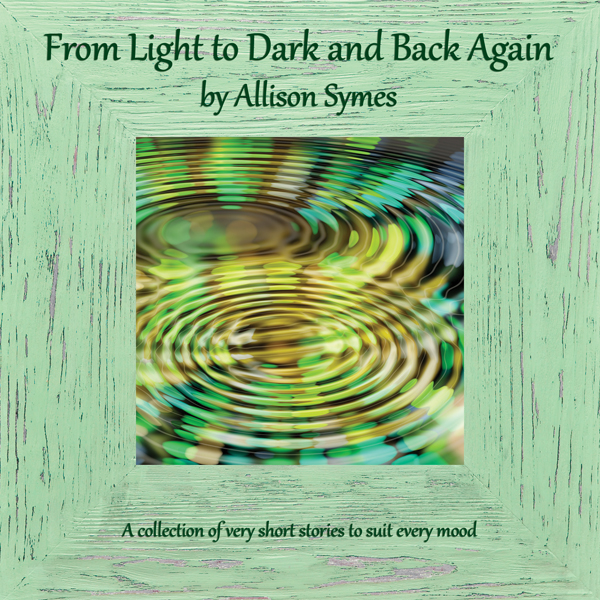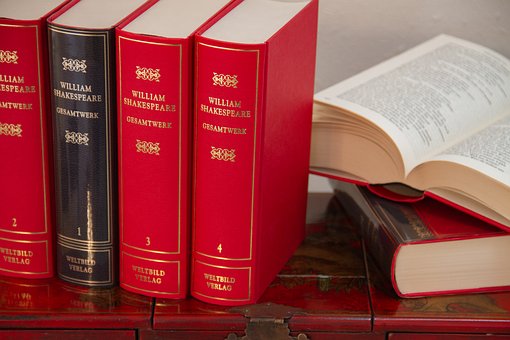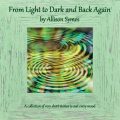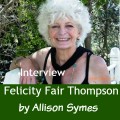Sayings are strange things at times. Okay, the one about not casting a clout before May is out does make sense. We live in Britain. The weather is changeable!
However, there are others that are open to question and some relate to writing.

Never judge a book by its cover
Okay, this is fine and dandy when you take it to mean you shouldn’t judge a person just by how they look. It is someone’s character that matters most.
However, when it comes to books themselves, this saying is nonsense. When it comes to deciding on your next book to read, of course you should judge it by the cover. I’ve yet to see a thriller with a pretty pink cover on it or a romance novel with a black cover and images of blood stains on it.
Publishers rightly use types of cover for types of book or set up a certain image that you associate with them. My publisher, Chapeltown Books, have done this with their frame around a central image. I suspect one of the best known publishing images is still Penguin’s “orange” brand.

The cover should be the starting point for deciding whether you are going to read a book or not, given its job is to give you the first clues as to what kind of story is contained within it, even before you’ve read one word of the blurb.
I sometimes receive surveys asking me to comment on book covers by new authors and I always pick out those where I can tell the genre immediately. I also like there to be a good, clear image and not a lot of writing on the cover. Too much muddies the waters… You want the writing for the blurb (and even then not much. The idea is to entice you into reading the book).

While doing some background investigations for other proverbs relating to writing, I came across these. There are others but I really liked these.
Never write a letter while you are angry.
This is a Chinese proverb and I would change one word in it. I’d make it never send a letter while you are angry. It can be cathartic to write your anger out sometimes. You just don’t send the letter or email as it stands though!

Even the best writer has to erase.
This comes from Spain and it is true. Ernest Hemingway famously rewrote the ending of A Farewell to Arms at least 39 times (other sources quote it as 47), but whatever the true figure, it confirms that persistence is the biggest “secret weapon” of any writer. Also, you as the writer, should be reasonably happy with what you’ve come out with and, if you’re not, change it!
Whoever writes a book, should be ready to accept criticism.
This comes from Iraq. I can’t think of any writer who hasn’t had to accept critics of their work at some point in their careers. The one comfort here is critics don’t always get it right either!

However, one saying I’d like to see go into the canon of wise sayings relating to writing is:-
Never judge an author by what they write
My stories often have characters I wouldn’t want to meet in any kind of alley, yet alone a dark one, yet they are no reflection on me (honestly!). One of the nicest people I know writes serial crime and doesn’t spare the body count.
Many of my fellow Chapeltown authors write tales with very powerful twists and some of the stories make your blood run cold. Does that mean we’re an unfeeling lot just out to scare all of you? No! Well not in life anyway… We do leave that to our fiction!
Write what you know
The jury is definitely out on this one. There has to be room for the imagination to flourish in fiction, otherwise there would be no room for science fiction and fantasy in particular. You can’t write about other worlds based on this saying given, as far as we know to date, we are alone in space on this planet. Where are the other inhabited worlds in space?
However, non-fiction can help you expand (a) what you do know so you cover this saying that way and (b) spark off ideas for how your story/world/characters will be different from what you do already know.

What did Shakespeare know about fairies, witches and so on to be able to write A Midsummer Night’s Dream, Macbeth etc? Given Hamlet’s storyline, does this mean the Bard was prone to violence? I think not… (Though it is ironic one of his rivals, Christopher Marlowe, was murdered).
Charles Dickens could and did write about the horror of poverty, having experienced it first hand. His father had ended up in the debtors’ jail and Dickens maintained a horror of poverty all of his life. But where did the likes of Fagin come from? Had Dickens met characters like that? In his case, that’s a real possibility, though I doubt if he had much experience of spirits (the spectral kind) to write the wonderful A Christmas Carol!

Useful Writing Sayings
Sometimes you come across sayings relating to writing that are useful.
“Substitute ‘damn’ every time you’re inclined to write ‘very;’ your editor will delete it and the writing will be just as it should be.” ― Mark Twain
“No tears in the writer, no tears in the reader. No surprise in the writer, no surprise in the reader.” ― Robert Frost

The first audience for your work is you. If you don’t enjoy it, nobody else will. Writing flash fiction has taught me what my wasted words are and “very” has been one of them.
“We are all apprentices in a craft where no one ever becomes a master.” —Ernest Hemingway.
All you can do here is try and improve on whatever you’ve written before, no matter how many books you’ve written.

And then there are the thought provoking words of wisdom.
Reading and writing, like everything else, improve with practice. And, of course, if there are no young readers and writers, there will shortly be no older ones. Literacy will be dead, and democracy – which many believe goes hand in hand with it – will be dead as well. – Margaret Atwood
Is she right? I think she is. It worries me whenever I hear people say they have no time to read. Yes, you do. You can read short stories. You can read a book, on your Kindle, on your phone or what have you. You can download books nigh on instantly.
So what is the real reason for people not reading? Is it because they don’t see books as a valid form of entertainment?

I think the challenge for all writers, non-fiction too, is to show people that books are worth reading (in whatever their format of choice is) and their value for entertainment, information etc, is enormous. So another saying I’d like to see added to the canon would be:-
Read – read widely and well – it is good for you!
Related Posts:-
Read interviews with Chandler’s Ford writer Allison Symes: Part 1 and Part 2.
Read blog posts by Allison Symes published on Chandler’s Ford Today.






I certainly agree with you about book covers. They are an excellent guide. Wherever possible I choose my book covers which try to indicate the contents and more besides. Too often publishers will take an easy option and go for something plain. My wife writes books on law and jurisprudence, a subject which to the public has a rather dry and boring image. But she too has persuaded the university presses to add vivid pictures on the covers.
Many thanks for your comments, David. Eye catching covers (which shouldn’t be complicated) can and do make the difference to whether anyone even picks up a book to read, yet alone buy it. I know! I do have a good study of the cover before I buy books, even when I buy online!